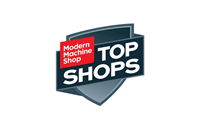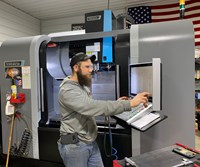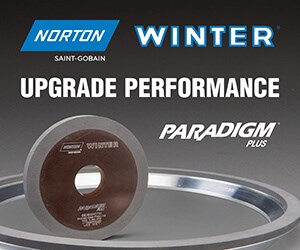Shop Control Getting Easier With Better Tools
Keeping metalworking shops under control has never been easy. Fortunately, shop management systems are getting better at functioning in this hectic environment.
Keeping metalworking shops under control has never been easy. With so many jobs in various stages of completion and finite production resources with which to do the work, keeping it all moving smoothly is a challenge under the best of circumstances. Add the shortened lead times, smaller lots and higher mix production that are common today, and managers have to scramble to make sure everyone--from production schedulers to machine operators--get the right job information at the right time. Otherwise, orders won't get shipped on time.
Fortunately, shop management systems are getting better at functioning in this hectic environment. At once, systems are growing more capable and easier to use. That comes in part from software developers' increasingly insightful appreciation for true manufacturing requirements, but also in their ability to leverage general computer industry developments in PC technology, operating systems and database technology.
A good example of this trend is the Smart Shop Manager system from Smart Shop Software, Inc. (Post Falls, Idaho). The system is intended to offer a fast and reliable way of delivering accurate information to all levels of manufacturing personnel. Among its fully integrated functions are estimating, order processing, purchasing, inventory, accounting, scheduling, job tracking, job costing, bill of material and real-time data collection. The modular structure of the system allows it to be used by relatively small manufacturers, but it can be scaled up to serve much larger concerns, or grow with a shop over time.
Smart Shop Manager runs on Microsoft's Windows 95 and Windows NT 4.0 operating systems. And people already using Windows for other applications will find some of the system functionality quite familiar. For instance, numerous "Wizards" step the user through processes to make daily operations simpler to execute. The system also supports the ability to deliver graphics along with other forms of documentation. Included is the ability to view CAD drawings, attach setup images or movies, and graph in 3D virtually every aspect of the job or facility. This provides the user a visual reference point for each job. Also, the system can alert the user to specific events or alarms using the built-in electronic mail system in Windows 95 and can even make contact through a commercial paging service.
Through the use of bar-coding terminals, data collection tasks such as employee timecards, payroll and job costing can be executed in real-time and that information can immediately be transferred throughout the network. This is not performed through typical batch downloading, but with time interval updates chosen at the user's discretion. As a result, management can identify cost or production at any point in time for analysis and decision-making purposes.
Although Smart Shop Manager requires Windows 95 or NT at each workstation, it will run on a variety of LAN platforms. The true 32-bit SQL client/server application is written in Borland's Delphi 2. Typically sold in 5-user blocks, the system is capable of serving 500 users concurrently and is bundled with Borland's Interbase.
Related Content
-
When Handing Down the Family Machine Shop is as Complex as a Swiss-Turned Part
The transition into Swiss-type machining at Deking Screw Products required more than just a shift in production operations. It required a new mindset and a new way of running the family-owned business. Hardest of all, it required that one generation let go, and allow a new one to step in.
-
Shop Moves to Aerospace Machining With Help From ERP
Coastal Machine is an oil and gas shop that pivoted to aerospace manufacturing with the help of an ERP system that made the certification process simple.
-
5 Reasons Why Machine Shop Ownership Is Changing
Mergers, acquisitions and other ownership changes are an effect of Boomer-age shop owners retiring, but only in part. Also important: The way we think about machining has changed.















